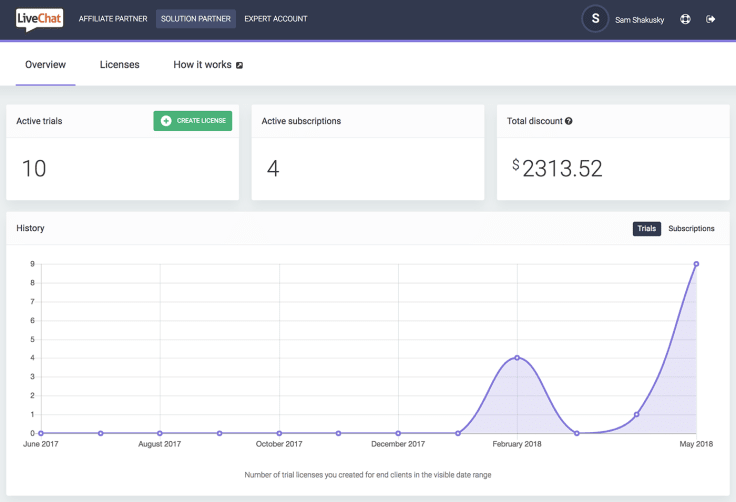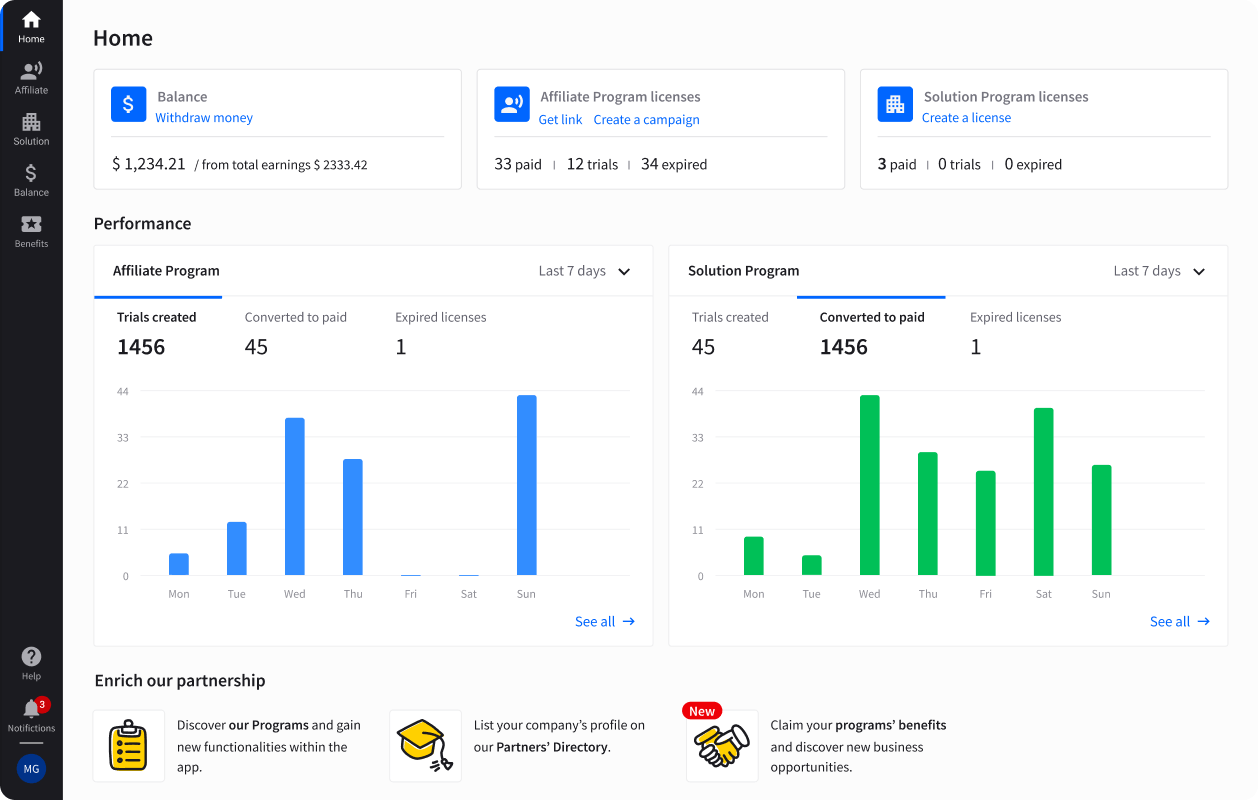Showing top 0 results 0 results found
Showing top 0 results 0 results found

Partner marketing is a marketing technique that with a bit of thoughtful approach can be beneficial for your business. But it can also be done wrong. In fact, very wrong.
So far in my partner marketing series, I've covered pros and cons of this marketing technique, listed six places where you can find awesome business partners, and written about things you should have ready before your partner marketing outreach. Now it's time to check what partner marketing mistakes you should avoid and how to do just that.
So, what things you should never do in partner marketing?
Let's find out! Here's a list of true no-nos of this advertising technique:
1. Not clarifying what your business partnership goals are
Not defining the objectives of business collaborations can happen to the best of us. You get excited about a prospective business partnership, and you dive head first without considering your goals and strategy. It's only after few months you start to analyze and follow up on things that worked and didn't work. This approach can mean that it's already too late to further leverage or fix them.
That's why it's important to establish your goals even before you'll start looking for potential collaborators. Here are some questions you should ask yourself:
- Why is it that you'd like to achieve with business collaborations?
- Would you like to use it to bring in more valuable leads?
- Is it about driving more traffic to your website?
- Or gaining new skills and expand your business offering?
Deciding on these things will profoundly influence ways your future partnerships will go.
Don't forget to put your goals on paper and include them in your partnership agreement.
Not signing one, because you've registered to become an Affiliate or a Solution Partner? Make sure you create a document with a list of these anyway.
This way, you can refer to them any time you feel like you're losing focus or you're not sure what was your initial idea for a business partnership.
2. Not thinking about the business partnership as a long-term investment
Once you sign a partnership agreement or register for a partner program, don't forget that you're in for the long haul. Don't expect the results to come in overnight as most partnerships need at least few weeks to get into the full swing and be of benefit to you and your business collaborator.
To give you an example: if you sign up as a LiveChat Solution Partner and start setting up licenses on behalf of your existing customers, you may notice that all trials last at least 14 days. It means that it will be a month before you'll start seeing any benefits and earning money through the program.
The same goes for an affiliate account. Once you share your affiliate link or create a campaign, you'll still have to wait for your trials to turn into paid accounts and yes, that means nurturing these too. This is how partner dashboard may look like after the first week in the Partner Program:

Don't get discouraged though! Partner marketing may need a bit more time and work, especially compared with other advertising methods, but as you may learn from LiveChat Partners' success stories, it's worth it. What you gain is an invaluable partner support network and an ever-increasing (or at least steady) flow of income.
Although it's very easy to focus on quick wins in the first initial weeks of your business partnership, don't forget about planning for the months and years to come. Sketching a one- or even a five-year roadmap for a partnership will be beneficial not only to your and your collaborators' businesses but also to your customers/users.
I am also more than sure it will influence other areas of your venture, and you'll be able to implement at least a few long-term, company-wide strategic assets.
3. Making it difficult for your business partner
A business partnership is much like any other partnership: what you give is what'll get. Before you'll sign a partner marketing agreement or start promoting products as an affiliate, make sure that your business collaborator will be there when you need them and can spend as much time working on the projects you run together as you're planning on spending.
At LiveChat, we assign a dedicated partner manager to you once you register. Their main role is making sure that you're succeeding as a partner. Want to check it for yourself? Join us here.
Remember to communicate with your business partner on a regular basis, be it via email, a Slack channel or via regular calls to catch up. This way, you both know if any changes are happening in your ventures. If anything causes your partnership to be reviewed, you're both covered.
4. Not enough strategic planning
This comes back to preparing a strategy which will help you create value for your and your partner's customers/users. The most important parts of this plan include deciding on what exactly you can work on together and what kind of impact it can make on your businesses. At this stage, you'll also need to assess what type of work, including coding and preparing marketing docs, you'll need to count in. Make sure that take all of your partners' resources into account and the workload is evenly distributed based on these.
How can you avoid the lack of planning? Remember not to skip this phase of a business partnership. Schedule a meeting or a call with your partner and work on a roadmap which will help you estimate the workload and organize it in more detail. This way, assigning tasks to members of your teams will be easier, and the whole process will be far less time-consuming.
5. Not making sure that your partner is benefiting too
No one likes just giving all they have all the time, so once you start collaborating with other businesses, you need to make sure they're benefiting too. What's interesting, the same goes for well-developed companies with thousands of partners and smaller business that are just starting out in the world of business partnerships. Regardless your size, make sure that your business partnership is a win-win situation for both sides.
Meeting mutual goals and nurturing partnership in a way that's valuable for your partner is crucial when it comes to the collaboration being successful. Don't forget to include your partner in your communications (i.e., press releases, newsletters, social media, etc.) and if possible, give them exposure on your website or blog.
Over to you
As you may be able to grasp by now, partner marketing is all about long-term planning, goal alignment, and mutual benefits. Communicating with your business partner on a regular basis will be crucial for all three of these. Make sure that you establish channels that will be accessible for both of you and schedule calls or meetings to catch up on your everyday activities.
What's your experience with partner marketing? Would you add anything to the list? I'd love to discuss it in the comments below this article or on Twitter.



